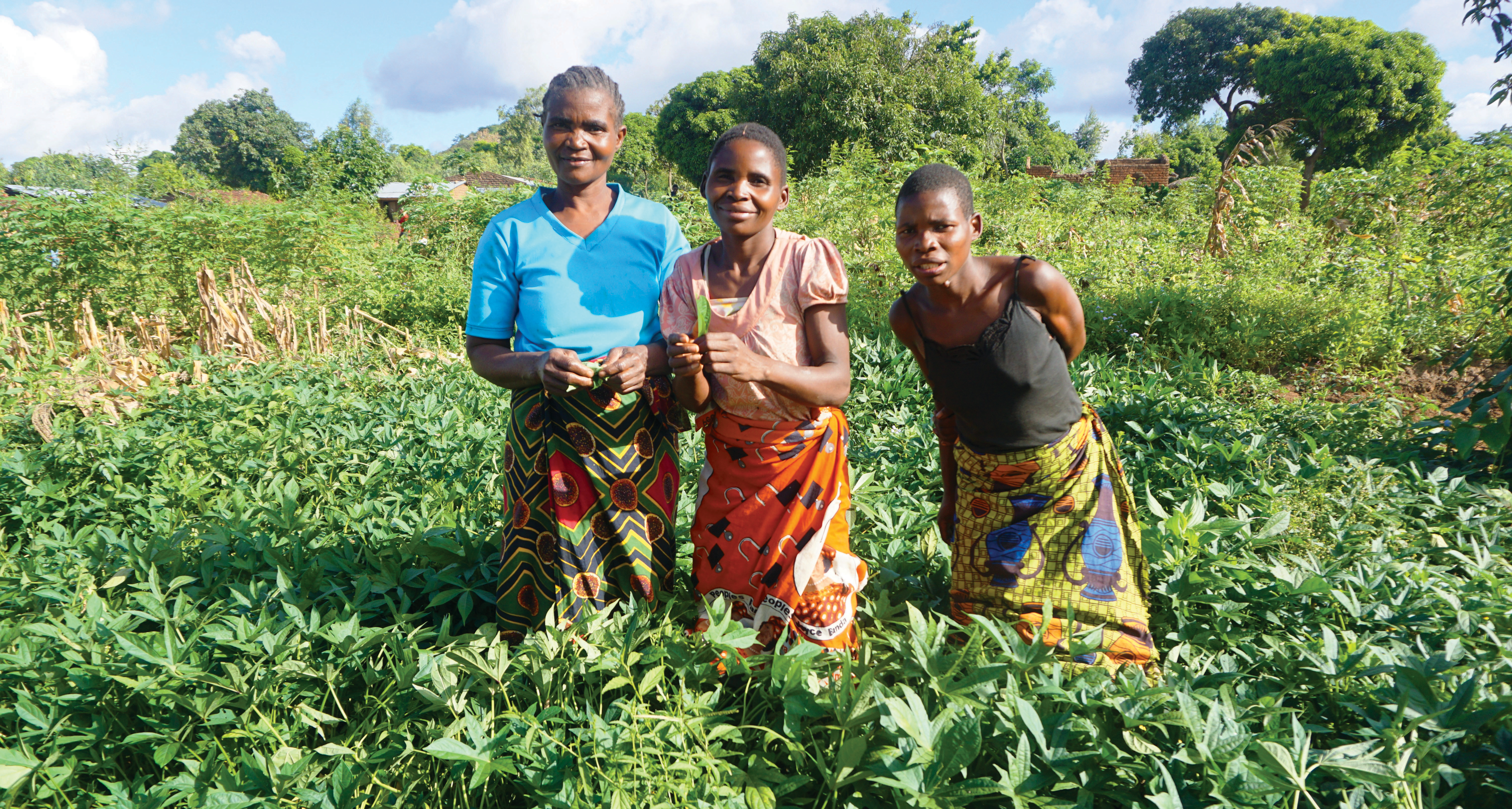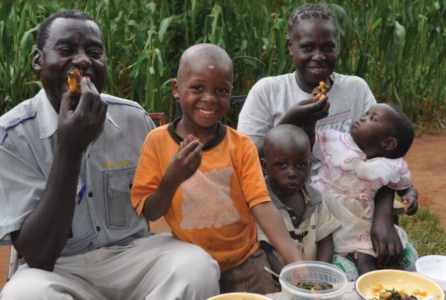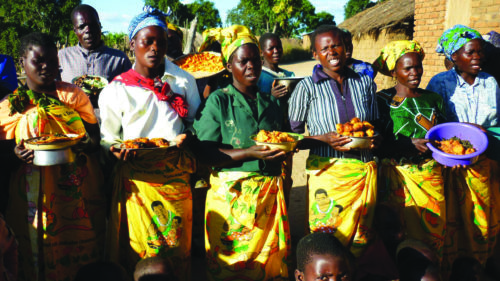
Roots and tubers have great potential to support food security and build resilient livelihoods among the poorest and most vulnerable people in Malawi. The Root and tuber crops for agricultural transformation in Malawi (RTC-ACTION Malawi) project aims to boost production and consumption of these crops, thereby supporting the country’s efforts to cut poverty, hunger and malnutrition.

Background
Most smallholders in sub-Saharan Africa cultivate maize as their principal food and income crop, with root and tuber crops (RTC) – including potato, sweetpotato, cassava and yam – given a lower priority. Often grown in ‘backyard’ plots for household consumption, roots and tubers provide a good source of energy, vitamins and micronutrients. They grow in challenging conditions, can be harvested earlier than staple crops like maize, are suitable for sale in urban markets, and are often the responsibility of women. These crops could make a much larger contribution to building food security and climate-resilient to livelihoods throughout the continent.
This project seeks to address the currently underexploited potential of RTC to contribute to food security, nutrition and incomes in Malawi. Further, it works across the potato, sweetpotato and cassava value chains to boost production as well as increase demand by consumers, traders and processors.
Objectives
The overall goal is to enhance the contributions of RTC to food security, nutrition and incomes by:
- increasing the productivity, climate resilience and nutritional value of RTC production systems;
- increasing the revenues, consumer orientation and nutritional outcomes of RTC value chains; and
- promoting effective policies and strengthening capacities for the continued development of RTCs.
Approach
The project was designed as a national research and development program with technical coordination by the International Potato Center (CIP) and broad national stakeholder engagement. One group of activities focuses on increasing the availability of quality planting materials for potato, cassava and pro vitamin A orangefleshed sweetpotato (OFSP). This is being achieved by increasing availability of new and improved varieties that are productive, nutritious and climate resilient; and strengthening seed multiplication and supply systems. Farmers are trained on improved crop management practices, including post-harvest handling.
Activities also focus on demand by promoting nutrition messages to rural and urban households to enhance their use of RTCs for food and nutrition security, and to encourage the sale of excess produce as an additional source of income. As such, the links between farmers, commercial processing enterprises and consumers are strengthened, with improved post-harvest handling, storage and transport contributing to cutting losses and boosting incomes. The third strand of activities focuses on coordinating stakeholders to build policy support and development investment in RTCs. The project supports continued innovation and promotes sustainability through building the capacity of local actors and institutions.
Achievements to date
In three years of project implementation, over 90,000 farm beneficiary households have received quality planting materials of improved varieties of potato, cassava and OFSP. Of these beneficiaries, more than 50,000 are women and 62,000 are children under five. Technology development continues with three OFSP varieties released in 2018 and promising cassava and potato varieties identified for release in the near future. Scientists have demonstrated that high yields (>20t/ha) can be achieved with the new varieties and improved crop management technologies, and that postharvest handling can reduce losses.
Nutrition promotion activities, implemented through partners, have reached nearly 3,600 care groups in three years. Better nutritional knowledge and improved child feeding practices have been delivered to these care groups, reaching more than 14,000 children under 5. Cooking demonstrations undertaken during farmer field days have also facilitated the sharing of nutrition information on the incorporation of RTCs into family diets. In addition, OFSP vines supplied to schools have been incorporated into their feeding programs, and children and their teachers are learning how to grow and prepare the crop.
To boost incomes and profits, RTC-ACTION Malawi works with producers, traders and processors to evaluate the profitability, consumer orientation and nutrition of RTC value chains. For instance, the project has helped the Tehilah bakery to market OFSP puree bread and buns. Working closely with small-scale businesses, RTCACTION Malawi has trained doughnut sellers to use OFSP puree in their products and facilitates linkages between these agro-processors and farmers. Farmers have received support and training to establish and manage cooperatives, while processors have received help in setting quality standards for processed foods (e.g. cassava high quality flour and crisps).
A revolving fund for RTC crops has been created that will ensure the availability of early generation quality seed after the project ends. It is envisaged that more privatepublic partnerships will be established so that commercial actors across the value chain have more business outlets and opportunities for growth.
Key outcomes
| Target | |
| Farmers with access to quality planting materials and trained on improved production practices | 160,000 |
| Consumers benefiting from nutritious root and tuber food | 500,000 |
| Farmers realizing at least 15% increase in root and tuber crop sales revenue | 20,000 |
| Farmers and traders benefiting from improved post-harvest practices | 1,000 |
| Children under five reached with improved root and tuber crop varieties and nutritional message for improved food and nutrition security | 60,000 |
| Women reached with improved root and tuber crop varieties, receiving nutritional message and improved diets and livelihoods in general | 80,000 |
Contact
Felistus Chipungu
CIP, Malawi
f.chipungu@cgiar.org
Thanks to our donors



